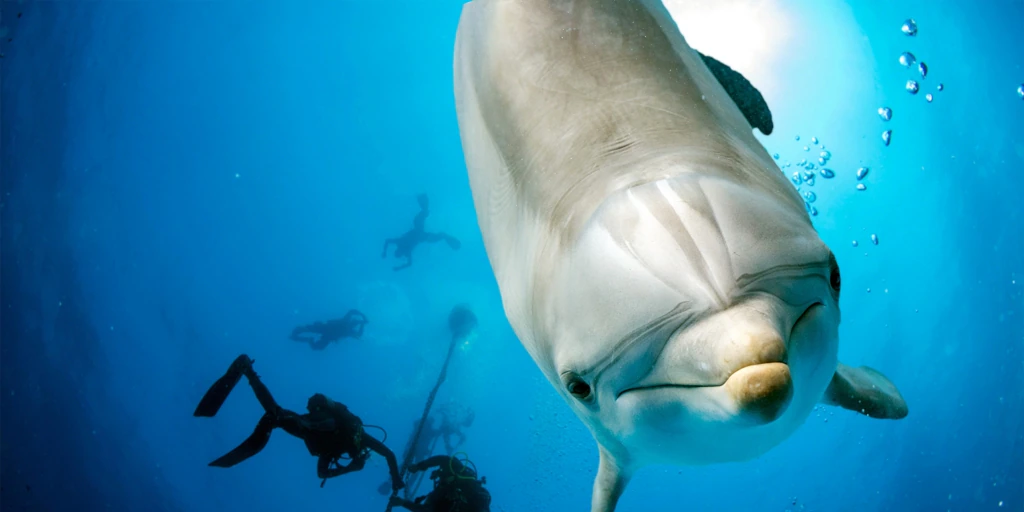Dolphins, especially social and intelligent mammals, use whistles to communicate with each other. Several species have even been discovered identified by ‘name’, several different tweets for each specimen. This exchange of information is essential for many cooperative activities, such as hunting or breeding. However, noise generated by human activities, such as drilling or shipping, can complicate these ‘conversations’ and negatively impact your health. A small study, conducted with two specimens in an experimental environment, shows that the dolphins ‘scream’ when they try to cooperate in response to increased noise levels underwater.
“The same reasons that make the use of sound so beneficial to animals also makes them vulnerable to noise disturbance in the environment,” says Pernille Sørensen, from the University of Bristol, UK. “In the last two decades, we have seen a dramatic increase in man-made noise, and noise pollution in the oceans is no exception,” he explained.
The two dolphins observed in this study, ‘Delta’ and ‘Reese’, were housed in an experimental lagoon and equipped with a suction cup sound recorder to document their vocalizations. The controlled environment allows them to follow the dolphins closely, something that is very complex in the wild.
The specimens must cooperate to each press their own underwater buttons placed at each end of the lagoon within one second of each other. They were released from their starting point during each trial, and for certain trials, one dolphin was held for five to 10 seconds while the other was immediately released. In the delayed release test, the dolphins relied solely on vocal communication to coordinate button presses.
The researchers found that when raised noise levels were played from underwater speakers, both dolphins they make up for it by changing the volume and duration of their calls to coordinate key press. From lowest to highest noise levels, the success rate for dolphins dropped from 85% to 62.5%. That is, even though they try to communicate, the excessive noise affects them in completing the task.
Dolphins, as the authors explain in ‘Current Biology’, not only change their vocation, but also They change their body language. As noise levels increase, dolphins are more likely to reorient themselves to face each other, and they also tend to swim to the other side of the lagoon to get closer.
“Our work shows that even though they try to compensate, despite being highly motivated and the fact that they know this cooperative task very well, noise still interferes with their ability to coordinate successfully,” says Sørensen.
While this study was conducted with dolphins living in human care, human-generated noise can also have a detrimental effect on wild dolphins. “If a group of animals in the wild, for example, is less efficient at finding food cooperatively, this will have an impact negative impact on individual health, which will ultimately affect the health of the population,” said co-author Stephanie King, a professor at the University of Bristol, Bristol, UK.
“Our results clearly demonstrate the need to consider how noise affects group tasks in wild animals,” added Sørensen.

“Internet trailblazer. Troublemaker. Passionate alcohol lover. Beer advocate. Zombie ninja.”







